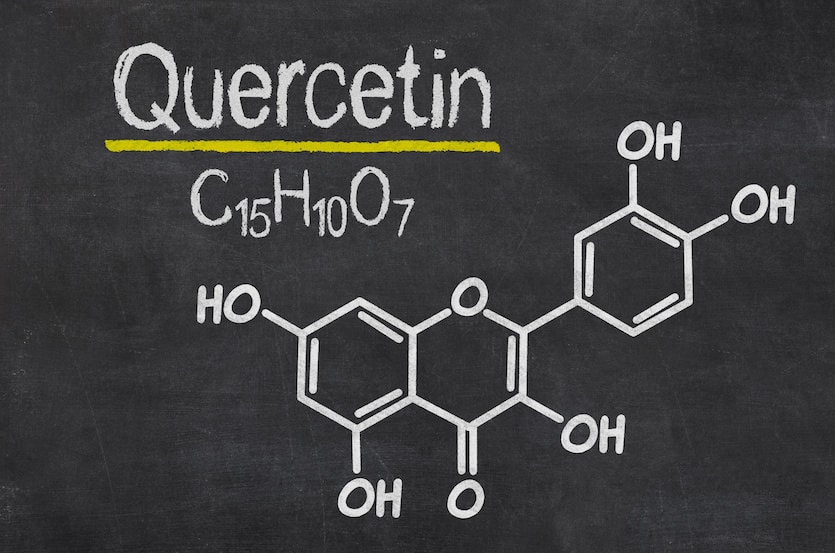How Quercetin Benefits Your Health

When it comes to nutrition, it’s easy to get lost in the scientific jargon—especially when you’re researching specific nutritional elements. Like learning about a particular micronutrient, taking an in-depth look at metabolism, or in this case diving deep into quercetin.
Whether you’ve heard of quercetin before or your research has led you down this molecular rabbit hole, don’t worry. We’ll break it down in a straightforward, easily digestible way. You’ll discover what quercetin is, the role it plays in your body, and how to get plenty in your diet.
What is Quercetin?
Quercetin is a flavonol, a sub-category of flavonoids, and a polyphenolic molecule found in plants. In other words, it’s a molecule found in many fruits and vegetables you regularly eat.
Many flavonoids are antioxidants, and quercetin is no different. In your body, antioxidants help to break down free radicals—a harmful molecule that can negatively impact your health. Though the exact benefits of quercetin are still being researched, scientists have linked it to a number of incredible health outcomes.
Health Benefits of Quercetin
As mentioned, quercetin is an antioxidant that helps break down substances that may be harmful to your body. That’s sounds nice, but what are it’s real benefits for the body?
Quercetin’s antioxidant power supports cardiovascular health and aids a normal inflammatory response throughout your body. It’s also thought to support your body’s response to allergy symptoms.
Additionally, quercetin is thought to offer your cells some protection from the dangers of cigarette smoke and air pollution.
Quercetin also plays a role in cell signaling, an efficient form of communication between and within your cells. It helps create signaling pathways that respond and adapt to your internal and external environment. These pathways are essential to assist many cellular functions to help maintain and promote your health. When cell-signaling pathways are working well, your body runs smoothly.
Other effects of quercetin are somewhat difficult to pin down. This is mainly because it’s quickly metabolized. Meaning, when quercetin enters your body, it’s broken up quite fast. So the cellular benefits seen in test-tube studies (in vitro) are not as easily observed in human studies (in vivo). This doesn’t necessarily mean the effects do not carry over, simply that more research is needed to confirm the in vitro benefits observed.
From Fresh Fruit to Supplements: Fitting Quercetin into Your Diet
Quercetin is the most common flavonoid found in a wide variety of fruits and vegetables. Most people consume an estimated 100 mg of quercetin daily by eating a well-balanced diet. But by focusing on quercetin-rich foods, you can easily bring this up.
You’ve got lots of options to increase your daily quercetin intake. Red onions, broccoli, peppers, and capers are all quercetin-filled foods easily found at any grocery store and delicious ingredients in many recipes. If you’re looking to get your quercetin from fruit, apples, grapes and berries are all tasty choices. And you don’t have to limit it to foods—wine and tea both contain quercetin as well.
Your body doesn’t synthesize quercetin, so all your intake needs to come from your diet or a supplement. Quercetin supplements, available as capsules or powder, usually contain about 500 mg per dose—five times the average daily intake. While quercetin supplements are generally thought to be safe, it’s best to consult with your doctor to discuss any medication interactions before adding a supplement to your diet.
The more you know, the better your body feels. And quercetin is a great and easy way to enhance your diet for better health.


